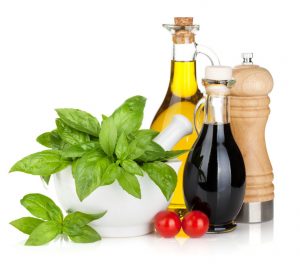
Have you heard of phytochemicals? These special little compounds are important to your health, but they often go unnoticed.
Phytochemicals have been used as poisons and used in medicine. They are chemical compounds produced by plants to help them resist fungi, bacteria and plant virus infections.
Well, that’s interesting. They protect the plant, so they also protect you. That’s why all animals eat them.
Phytochemicals are found in fruits, vegetables, grains, beans, and other plants. In people, phytochemicals are believed to protect cells from damage that can lead to cancer.
Some well-known phytochemicals are the flavonoids, isoflavones, curcumin, and carotenoids.
Eat The Rainbow

Have you ever heard the saying “eat the rainbow?” This is because phytochemicals give plants their color, flavor and aroma.
Here are some health benefits of phytochemicals:
- aid the immune system;
- protect cells and your DNA from damage that can lead to cancer;
- reduce inflammation;
- slow the growth rate of some cancer cells;
- help regulate hormones.
I wonder if this is one reason plants and wild animals don’t get cancer.

Foods High In Phytochemicals
Red, orange and yellow vegetables and fruit such as:
- tomatoes
- carrots
- peppers
- squash
- sweet potatoes
- peaches
- pears
- mangos
- melons
- citrus fruits
- berries
- soy nuts
Dark green leafy vegetables such as:
- spinach
- kale
- Bok choy
- broccoli
- Swiss chard
- Romaine lettuce
- garlic
- onions
- chives
- leeks
- turnips
- celery
- carrots
The best way to get more phytochemicals in your diet is to eat more plant foods. Make an effort to eat at least five portions of fruits and vegetables every day.

It’s good for your house pets, too.
_____________________________
If you want to learn more about health and disease prevention, contact me at janethull.com. Remember that you are never alone when you are looking for good health!
Gain access to all of my online programs, ongoing support, monthly Q&A, and more. I look forward to supporting you on your journey to alternative health and wellness.
_____________
Disclaimer: This article is for informational purposes only, and is educational in nature. The FDA may not have evaluated some of the statements. This article is not intended to diagnose, treat, cure, or prevent any disease. Please discuss with your own, qualified health care provider before adding supplements or making any changes to your dietary program.
Before taking vitamins, consult your doctor; pre-existing medical conditions or medications you are taking can affect how your body responds to multivitamins.
You have our permission to reprint this article if you attribute us with a live back-link to this article and the youtube links. https://janethull.com/